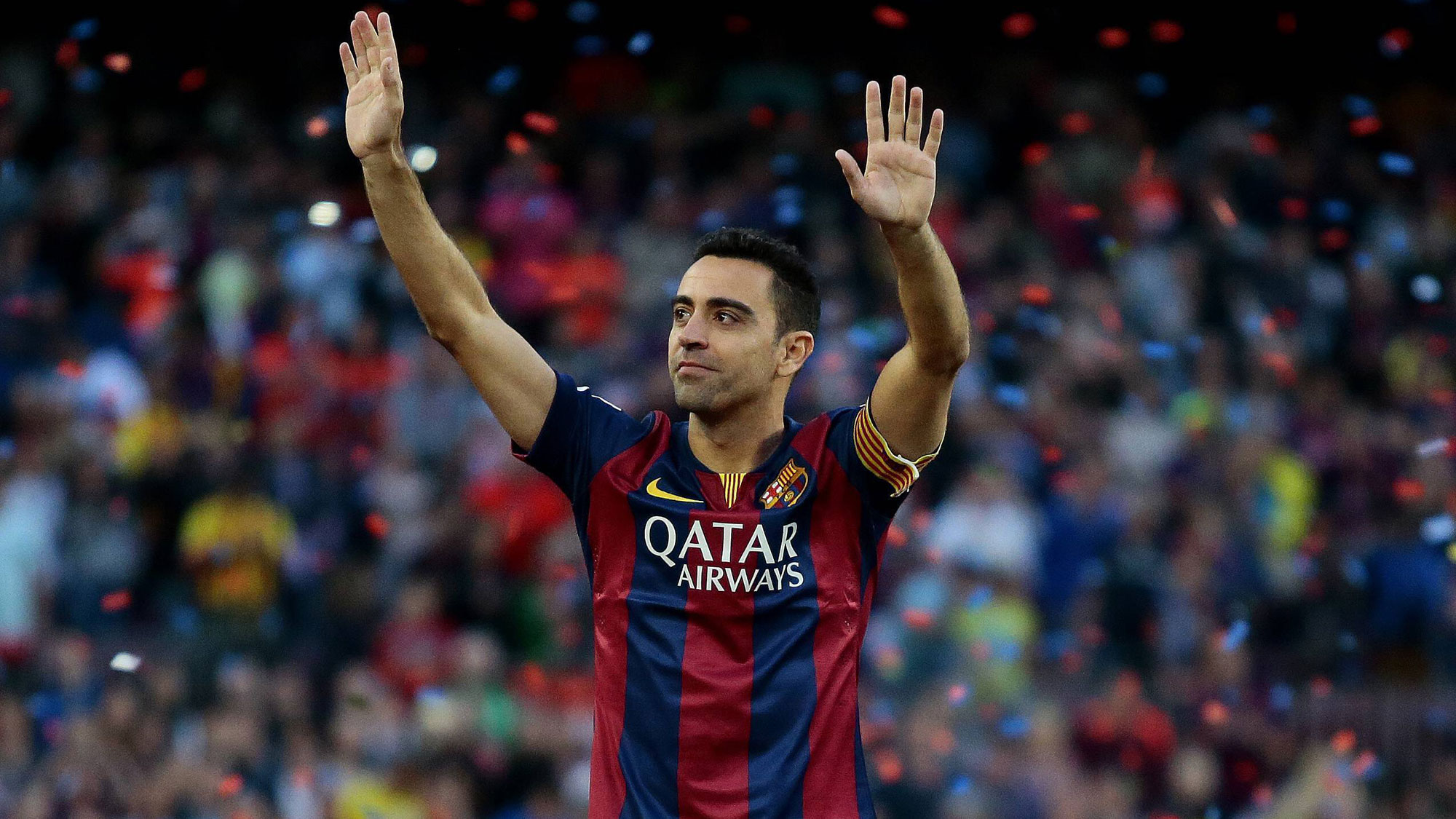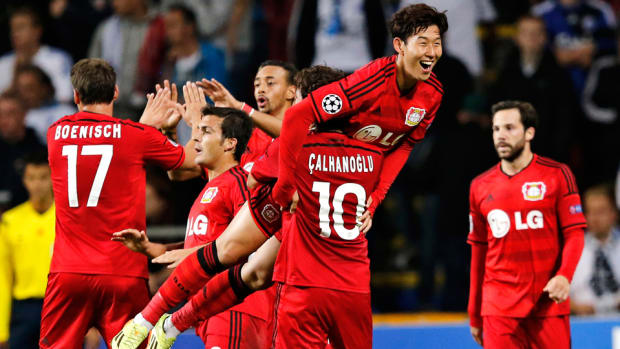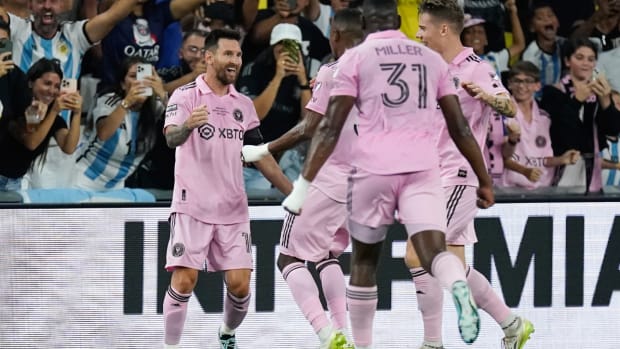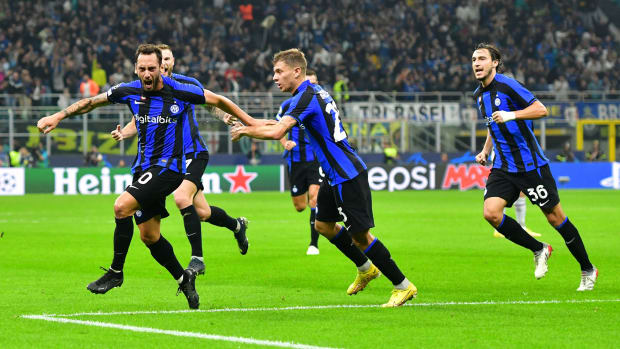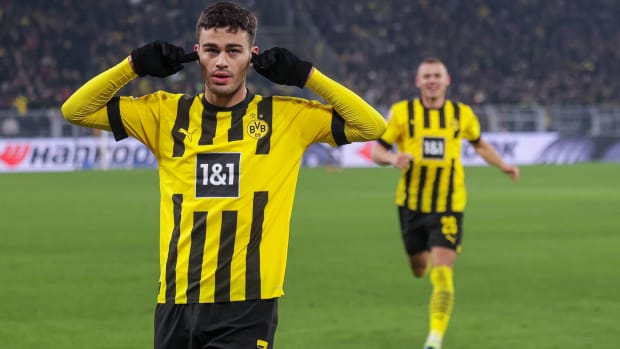Xavi Needs More Than Destiny to Restore Barcelona to Glory
Nobody ever really doubted that Xavi would become coach of Barcelona at some point. The only question was when, and that appears to have been resolved with his Qatari club Al-Sadd announcing his departure and posting images of his farewell on Friday, while the matter of compensation is sorted between the parties to complete his Barcelona homecoming. He returns to the Camp Nou a messiah in its time of need. Symbolically, he is the perfect figure for the job. He is the hero the narrative demands. But football doesn’t always conform to the demands of narrative. After all, Xavi’s predecessor Ronald Koeman, who scored the winner in the final when Barcelona first won the European Cup, was another coach who always seemed destined for the Camp Nou.
That Xavi is of Barcelona is beyond dispute. His pedigree is impeccable. He started playing on the streets in Terrassa, about an hour from Barcelona itself. He was spotted by a Barça scout at age 6 and was eventually signed by the club at 11. He was trained at La Masia. His first breaks in the Barcelona first team came under Louis van Gaal as Pep Guardiola began to struggle with injury.
Van Gaal saw Xavi as a deep-lying midfielder, and it was only after Frank Rijkaard took over as coach and signed Edgar Davids, allowing Xavi to operate in a more advanced role, that his career really took off. His combativeness, Xavi said, had a profound effect, making clear the level of commitment necessary to have success. It was then, he said, that he understood Barcelona was “fighting a battle for the soul of football.”
From then on, Xavi was a zealous proponent of the style of football laid down at Barcelona by Rinus Michels and then Johan Cruyff.
“It’s an Ajax model. It’s all about rondos [the exercise in which players circle and pass the ball around one or two interceptors]. Rondo, rondo, rondo. Every. Single. Day. It’s the best exercise there is. You learn responsibility and not to lose the ball. If you lose the ball, you go in the middle. Pum-pum-pum-pum, always one touch. If you go in the middle, it’s humiliating. The others applaud and laugh at you.”
That can make Xavi at times sound a little self-righteous, and there were times when he has seemed almost bothered that other teams have played defensively in an effort to stop Barcelona. But it also meant that when Barcelona was at its peak, under Guardiola in 2010–11, he appreciated not just the success but the way success came.
“I like the fact,” he said in an interview with The Guardian in 2011, “that talent, technical ability, is valued above physical condition now. I’m glad that’s the priority; if it wasn’t, there wouldn’t be the same spectacle. Football is played to win but our satisfaction is double.
“Other teams win and they’re happy, but it is not the same. The identity is lacking. The result is an impostor in football. You can do things really, really well—last year we were better than Inter [when Barcelona lost in the Champions League semifinals despite having 81 percent possession in the second leg]—but not win. There’s something greater than the result, more lasting.”
Joan Laporta, who returned as president in March, always wanted to appoint Xavi. For him, the appointment has the same logic as appointing Guardiola in 2008: returning the club to its roots. But there is a crucial difference. Guardiola was taking over a side that had won the Champions League two years earlier. Even if it had lost its way, and even if he went on to win the Champions League with seven La Masia graduates in the side, the financial crisis of the early part of the decade had passed. Xavi takes over with the crisis in full swing. There is youthful promise, old stars—his former teammates Jordi Alba, Sergio Busquets and Gerard Piqué still linger—and the likes of Memphis Depay and Frenkie De Jong, who have potential but have not yet exploded. But this is the weakest Barcelona squad in living memory.
And then there is Xavi himself. He has won the domestic league and cup with Al-Sadd, which is currently on a 36-game unbeaten run. But Qatar is not Spain, the Qatar Stars League is not La Liga and the AFC Champions League is not the UEFA Champions League. He was a great player in a Guardiola side just as Guardiola had been a great player for Cruyff. He can recite the scripture, but that doesn’t mean he necessarily understands it or how to impose or develop it.
Nevertheless, his return as manager has always seemed predetermined. In the 2018 documentary about Barcelona's peak years under Guardiola titled Take the Ball, Pass the Ball, he is presented as the next great mind on the Barça bench.
"It's a bit like the best cars. Cruyff was the first great model, the Mark 1, and Pep is the Mark 2," said Dani Alves, Barcelona's former fullback star and Xavi's teammate during Barcelona's golden age. "But I think Xavi will be in the same league when he returns as coach. When he comes back, he'll be the Mark 3."
Added Jordi Cruyff, Johan's son and currently a Barcelona advisor: "In my father's mind, [Xavi] was always el listo de la clase, the intelligent one of the class, the clever guy. The only problem will be that when already now everybody is pumping this up, then the pressure's too high. But if he follows his way, little by little, calm, like Pep did, then you're ready for it. And I hope Xavi one day will do that."
Xavi returns with the force of prophecy, but his appointment remains an enormous gamble and the task ahead of him is profound.
More Soccer Coverage From Jonathan Wilson:
